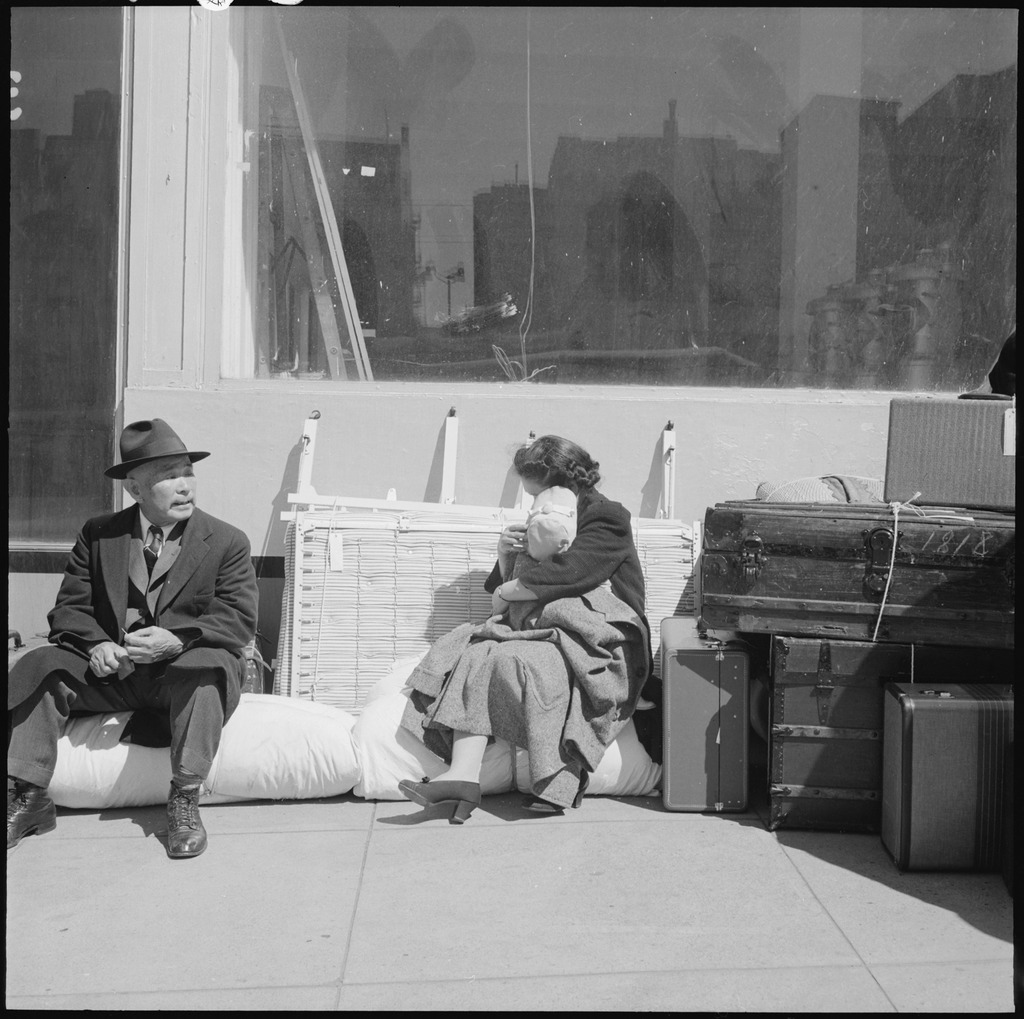June 29, 2015
“Slaves did not lose their dignity (any more than they lost their humanity) because the government allowed them to be enslaved. Those held in internment camps did not lose their dignity because the government confined them. And those denied governmental benefits certainly do not lose their dignity because the government denies them those benefits. The government cannot bestow dignity, and it cannot take it away.”
As stewards of Japanese American incarceration history and as allies to the African American community, Densho denounces Justice Thomas’s appropriation of these shameful histories to justify the further denial of civil liberties.
The question of whether dignity was taken away by these government actions is a personal matter that only the victims themselves can truly determine. The following quotes from former incarcerates show that they—and presumably many others—did indeed experience loss of dignity as a direct result of U.S. Government actions:
“When I arrived at Tule Lake, California, it was in the desert… and I was taken aback to see rows and rows of tarpapered barracks behind barbed wire. When I looked up I saw sentries wearing the same uniform as mine with a machine gun facing inward. That really hit me hard. I then entered the camp. There was a soldier who escorted me to the barracks where my parents were living. When I met my parents and my siblings, we greeted each other with smiles, but inside we were crying. It was very difficult. It was very devastating to find my parents and siblings deprived of their comfortable home, deprived of their rights, deprived of their dignity and placed behind barbed wire.”
–Grant Hirabayashi, former member of MIS and Merrill’s Marauders
“The strength and character of the 120,000 Americans of Japanese ancestry who were incarcerated during World War II have been tested and proven many times over. They bore the indignity of losing their freedom and their material possessions when the war began. They persevered and endured through the depredations of life in the camps. When they returned to their homes after the war, they still faced an unfriendly, even hostile, world. Despite all this they reassembled their lives and livelihoods. With time, patience, and hard work they became successful professionals, community leaders, and parents. Hard work could overcome the material losses of seized property or the four years lost to camp, but it could not replace the dignity and self-respect lost when someone is ostracized and imprisoned without cause. For more than a generation Americans of Japanese ancestry bore this burden in silence and without remedy.”
–Robert Matsui in his foreword to Achieving the Impossible Dream: How Japanese Americans Acheived Redress
“I lost my identity. At that time, I didn’t even have a Social Security number, but the WRA gave me an I.D. number. That was my identification. I lost my privacy and dignity.”
–Betty Matsuo in testimony before the Commission on Wartime Relocation and Internment of Civilians, San Francisco, Aug. 11, 1981, cited in Personal Justice Denied
—
Works cited:
Robert Matsui, “Foreword,” Achieving the Impossible Dream: How Japanese Americans Obtained Redress, by Mitchell T. Maki, Harry H.L. Kitano, and S. Megan Berthold (Urbana: Univeristy of Illinois Press, 1999), p. ix.
Betty Matsuo testimony before Commission on Wartime Relocation and Internment of Civilians, San Francisco, Aug. 11, 1981, cited in Personal Justice Denied: Report of the Commission on Wartime Relocation and Internment of Civilians (Washington, D.C.: 1982), p. 135.
